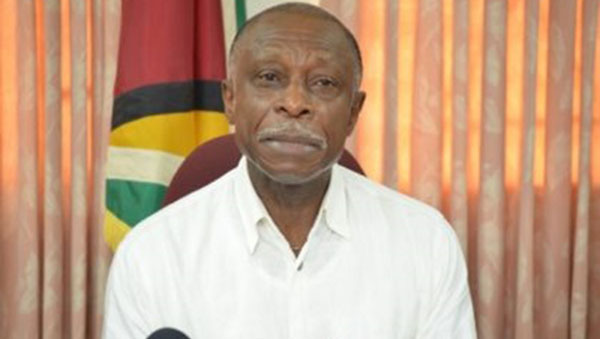GEORGETOWN, Guyana, August 23, 2018 (CMC) – The Guyana government has dismissed as ‘erroneous”, a local newspaper’s report that the country’s decision to be part of the China Belt and Road Initiative (BRI), could result in the Caribbean Community (CARICOM) country being caught up in a “debt trap”.
“Nobody is obliged to sign onto any such agreement and the suggestion that countries, as the newspapers try to put it, that have signed onto such an initiative have found themselves in a ‘debt trap’ is misleading,” Foreign Affairs Minister, Carl Greenidge, said.
He explained that at least 68 countries have become “part and parcel of the Belt and Road Initiative”, adding “I won’t say it’s insignificant, but a number of them have encountered difficulties arising from the project.”
The BRI is a development strategy, proposed by the Chinese government, which focuses on connectivity and cooperation between Eurasian countries, primarily the People’s Republic of China (PRC), the land-based Silk Road Economic Belt (SREB) and the ocean-going Maritime Silk Road (MSR).
China calls the initiative “a bid to enhance regional connectivity and embrace a brighter future”, while its critics regard it as a push by Beijing to adopt a larger role in global affairs.
Greenidge said Guyana signed a Memorandum of Understanding (MOU) with China and not a loan agreement, adding that the MOU provides the framework for a voluntary agreement between bilateral partners.
Greenidge said the difficulties, experienced by some countries’ BRI, cannot be blamed on the project, “if you start off indebted before you take an additional loan, you will still be indebted”.
He said the newspaper article conforms to what is known as a “herd mentality”, where conclusions are drawn from a few criticisms, without adequate research and analysis or without examining the specific case in point.
He said there are general criticisms of all forms of aid, premised on the argument, that it leads to weakening of fiscal and policy incentives for countries to undertake projects.
“It has nothing to do with China, it applies to all aid, whether it is from the United Kingdom, or the United States,” Greenidge said, adding that there has been an ideological “push back” to the Chinese providing aid to both the Third World and developing countries.
“You will find countries in Europe, Central Europe, Central Asia and elsewhere, receiving aid from China as part of the Belt and Road Initiative or general aid,” he pointed out.
Greenidge said that the reaction by many Western countries was to attack these countries and China, noting that this approach has been self-serving.
“We are in a country that has been politically close to China for many years, it is also extremely close, and physically close, to the United States.
“We have all sorts of aid from the United States, and it would be somebody very blind who would suggest either that there have been no failures, or that the failures are as a result of the origin of the aid or the origin of the fund,” Greenidge said.
 Pride News Canada's Leader In African Canadian & Caribbean News, Views & Lifestyle
Pride News Canada's Leader In African Canadian & Caribbean News, Views & Lifestyle





